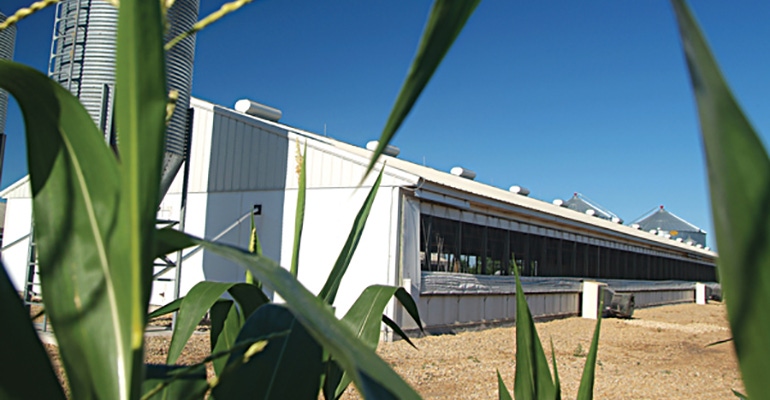According to recent EPA findings, the production of U.S. pork is responsible for only 0.3% of all agriculture greenhouse gas emissions in the country.
June 24, 2020

The National Pork Producers Council strongly supports legislation being discussed during a Senate Agriculture Committee hearing Wednesday that creates important elements needed to support a private carbon credit offset market. The bill would reward the valuable current and future contributions by pork producers and other sectors of agriculture to reduce greenhouse gas emissions.
The Growing Climate Solutions Act, introduced by Sens. Mike Braun (R-IN.), Debbie Stabenow (D-MI.), Lindsey Graham (R-SC) and Sheldon Whitehouse (D-RI), would direct the USDA to create a program to provide transparency, legitimacy and informal endorsement of third-party verifiers and technical service providers that help private landowners generate carbon credits through a variety of agriculture and forestry related practices.
"U.S. pork producers, who have been at the forefront of environmental sustainability, are committed to the long-term protection of our country's natural resources," says NPPC President Howard "AV" Roth, a hog farmer from Wauzeka, Wis. "Thanks to continuous on-farm improvements in nutrition, genetics and overall pig care, U.S. pork producers are doing more with less. This bipartisan effort will help give the private sector the standards and certifications needed to recognize and reward the important work being done by U.S. hog farmers to reduce our carbon footprint. We thank the senators for their leadership and look forward to passage of this important legislation."
According to recent Environmental Protection Agency findings, the production of U.S. pork is responsible for only 0.3% of all agriculture greenhouse gas emissions in the country. Likewise, according to a 2019 study by the National Pork Board, U.S. pork producers have used 75.9% less land, 25.1% less water and 7% less energy since 1960. This also has resulted in a 7.7% smaller carbon footprint.
Source: National Pork Producers Council, which is solely responsible for the information provided, and wholly owns the information. Informa Business Media and all its subsidiaries are not responsible for any of the content contained in this information asset.
About the Author(s)
You May Also Like



